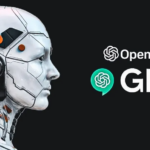For years, search results have been plagued by AI-generated clickbait. These low-quality, often misleading articles, were specifically designed to manipulate search algorithms and snag those precious clicks. But in a recent announcement, Google is taking a stand against this digital scourge.
The Rise of the Machines (That Write Clickbait)
The rise of AI in content creation has had its downsides. Scalable content creation, where vast numbers of articles are churned out to game search engines, became a major problem. These articles often:
- Promise outrageous revelations but deliver nothing. ("Scientists Discover Shocking Truth About [Insert Commonplace Topic Here]")
- Use manipulative headlines and listicles. ("10 Signs You Might Be a Secret Genius" or "The Worst Celebrity Breakups of All Time (Number 7 Will Shock You!)")
- Contain thin, repetitive content with scant factual basis.
This not only frustrated searchers, but also eroded trust in online information as a whole.
Google Fights Back: A New Era for Search?
Google's updated spam policy targets these very tactics. They aim to reduce "scaled content abuse" and domain squatting, where sites with established reputations are used to push AI-generated content. This update promises a 40% reduction in low-quality, unoriginal content in search results.
This is potentially a game-changer. Here's what it could mean for you:
- More trustworthy search results. You'll be more likely to find genuine, informative content that addresses your search queries.
- Less wasted time. No more clicking on intriguing headlines only to be met with fluff.
- A healthier online information ecosystem. By prioritizing quality content, Google discourages the creation of misleading clickbait.
But is it the End of Clickbait Forever?
It's unlikely. Clickbait thrives on human curiosity and the desire for quick fixes. However, Google's move makes it harder for these tactics to succeed. Users are likely to become more discerning when evaluating search results, leading to a potential decline in clickbait's effectiveness.
The Future of Search: A Collaborative Effort
While Google's update is a positive step, the fight against clickbait requires vigilance from everyone involved. We can all play a role in promoting a healthier online information landscape by:
- Critically evaluating search results. Don't just click on the first captivating headline. Look for established sources and well-written content.
- Supporting high-quality content. Give genuine creators the clicks and shares they deserve.
- Reporting misleading content to search engines and platforms.
By working together, we can ensure that Google's efforts to kill AI clickbait translate into a more informative and reliable online experience for everyone.
Beyond Clickbait: Addressing the Broader Issue of Misinformation
While Google tackling AI-generated clickbait is a welcome step, it's crucial to remember that this only scratches the surface of the larger issue of online misinformation. Clickbait, often sensationalized and misleading, contributes to the spread of false information, but it's only one part of a complex problem.
Here are some additional points to consider:
The Rise of Deepfakes: AI technology also fuels the creation of deepfakes, highly realistic videos or audio recordings that are manipulated to make it appear as if someone said or did something they never did. Deepfakes pose a significant threat to our ability to discern truth from fiction online.
The Algorithm Conundrum: Search algorithms, even the improved ones Google is implementing, still rely on complex calculations that can favor engagement over accuracy. This can lead to the amplification of sensationalized content, even if it's not necessarily clickbait.
The Need for Media Literacy: Ultimately, the fight against misinformation requires a multi-pronged approach. Equipping individuals with media literacy skills is essential. By learning how to critically analyze information, identify sources, and understand how online content is created and disseminated, individuals can become more discerning consumers of information online.
The Role of Social Media Platforms: Social media platforms also play a crucial role in curbing the spread of misinformation. Implementing stricter fact-checking policies, promoting content moderation, and encouraging users to report suspicious content are all essential steps towards fostering a healthier online information environment.
Conclusion: A Collective Responsibility
The battle against online misinformation is an ongoing one. While Google's efforts to combat AI clickbait are commendable, it's important to remember that it's a shared responsibility. Technological advancements, individual media literacy, and responsible practices by online platforms are all crucial factors in creating a more informed and truthful online experience. By working together, we can ensure that the internet remains a valuable source of information and not a breeding ground for misinformation and manipulation.
Google's future with AI is likely to be one of continued investment and exploration, aiming to leverage the technology's potential across various aspects of its business. Here are some key areas to consider:
Deeper Integration into Existing Products: We can expect AI to become even more deeply woven into Google's existing products and services, from search and email to maps and smart home devices. This could involve:
- Enhanced search capabilities: AI could personalize search results based on individual needs and preferences, providing more relevant and helpful information.
- Smarter email assistants: AI-powered features could automatically categorize emails, schedule meetings, and even generate draft responses.
- Proactive assistance in Maps: AI might suggest personalized routes based on traffic conditions, real-time updates, and even user preferences like avoiding tolls.
- More intuitive and personalized interactions with smart home devices, anticipating user needs and offering proactive suggestions.
Focus on Generative AI: Google has shown significant interest in generative AI, which can create entirely new content like text, audio, or images. This technology could be used for:
- Developing creative tools: AI-powered tools for artists, writers, and designers could assist in brainstorming ideas, generating different creative variations, and even composing content in different styles.
- Personalizing user experiences: AI could personalize content recommendations on YouTube or generate unique product descriptions for different audiences.
- Revolutionizing search: AI might even generate summaries of complex topics or create interactive visualizations of search results, enhancing user understanding.
Responsible Development and Use of AI: As Google pushes the boundaries of AI, it is crucial to prioritize responsible development and use. This includes:
- Addressing ethical concerns: Google will likely face ongoing challenges regarding bias, fairness, and the potential misuse of AI. Addressing these concerns transparently and proactively will be critical.
- Ensuring transparency and explainability: Understanding how AI models reach their conclusions is crucial for building trust and ensuring responsible use.
- Collaboration and open dialogue: Google is likely to continue collaborating with researchers, policymakers, and the public to ensure AI development benefits society as a whole.
Overall, Google's future with AI is likely to be one of both immense opportunity and significant challenges. By harnessing the technology's potential responsibly and ethically, Google can continue to innovate and create products and services that improve people's lives. However, navigating the ethical and societal implications of AI will be an ongoing process that requires continuous effort and collaboration.
Declaring a single winner in the "AI race" is difficult. Here's why:
- Different Goals: Google and OpenAI (creators of ChatGPT) have different priorities. Google might focus on integrating AI seamlessly into existing products like Search, while OpenAI might prioritize more experimental and artistic applications.
- Metric of Success: There's no single metric to define an "AI winner." Success could be measured by user adoption, technical prowess, or the positive impact on society.
- Constant Innovation: Both companies are constantly evolving. Google's recent introduction of Gemini, a powerful LLM, highlights their ongoing efforts.
However, we can analyze some factors to understand their current positions:
- Technical Capabilities: Benchmarks suggest Google's Gemini might outperform ChatGPT in some areas. However, these benchmarks are constantly changing, and ChatGPT is likely being improved as well.
- Market Reach: Google has a wider user base with products like Search and Gmail, offering a potential advantage for integrating AI functionalities.
- Open Source vs. Closed: ChatGPT is more closed-source, limiting user access and customization compared to Google's potentially more open approach with some AI tools.
Here's a possible scenario:
- Multiple Leaders: Multiple strong AI systems from different companies could emerge, each with its own strengths and weaknesses, catering to different needs.
- Collaboration: There might be collaboration between companies, leveraging each other's strengths to advance AI research and development.
The Future:
Instead of a single winner, we might see a future with:
- Specialization: Different AI systems excel in specific areas, leading to a diverse and specialized landscape.
- Focus on User Applications: The focus might shift from technical benchmarks to creating user-friendly and impactful applications of AI in various industries.
- Ethical Considerations: Responsible development and use of AI will remain a crucial factor for any company striving for leadership.
Ultimately, the "AI race" might not be about a single victor, but a collaborative effort to push the boundaries of this technology and create a better future for all.
Read More : 5 Ways AI is Already Changing Your Life (Without You Even Knowing)





